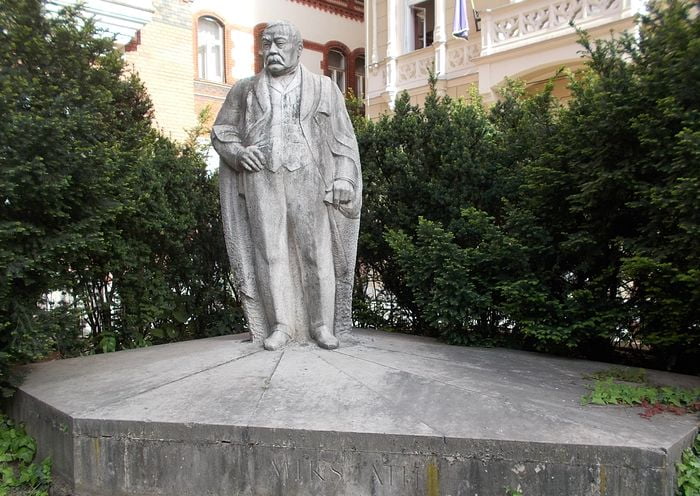The task of finding a new keeper fell to the United States consul living in Panama, and this task was no small one: first, because it was absolutely necessary to find a man within twelve hours; second, the man must be unusually conscientious—it was not possible, of course, to take the first comer at random; finally, there was an utter lack of candidates.
Life on a tower is uncommonly difficult, and by no means enticing to people of the South, who love idleness and the freedom of vagrant life.
That lighthouse keeper is almost a prisoner. He cannot leave his rocky island except on Sundays. A boat from Aspinwall brings him provisions and water once a day, and returns immediately; on the whole island, one acre in area, there is no inhabitant.
The keeper lives in the lighthouse; he keeps it in order. During the day he gives signals by displaying flags of various colors to indicate changes of the barometer; in the evening he lights the lantern.
Mr. Isaac Falconbridge
This would be no great labor were it not that to reach the lantern at the summit of the tower he must pass over more than four hundred steep and very high steps; sometimes he must make this journey repeatedly during the day. In general, it is the life of a monk, and indeed more than that—the life of a hermit.
It was not wonderful, therefore, that Mr. Isaac Falconbridge was in no small anxiety as to where he should find a permanent successor to the recent keeper; and it is easy to understand his joy when a successor announced himself most unexpectedly on that very day.
He was a man already old, seventy years or more, but fresh, erect, with the movements and bearing of a soldier. His hair was perfectly white, his face as dark as that of a Creole; but, judging from his blue eyes, he did not belong to a people of the South. His face was somewhat downcast and sad, but honest. At the first glance he pleased Falconbridge. It remained only to examine him. Therefore the following conversation began:
“Where are you from?”
“I am a Pole.”
“Where have you worked up to this time?”
“In one place and another.”
“A lighthouse keeper should like to stay in one place.”
“I need rest.”
“Have you served? Have you testimonials of honorable government service?”
The old man drew from his bosom a piece of faded silk, resembling a strip of an old flag, unwound it, and said:
“Here are the testimonials. I received this cross in 1830. This second one is Spanish from the Carlist War; the third is the French legion; the fourth I received in Hungary. Afterward I fought in the States against the South; there they do not give crosses.”
Read More about Domestic Conflicts part 19








